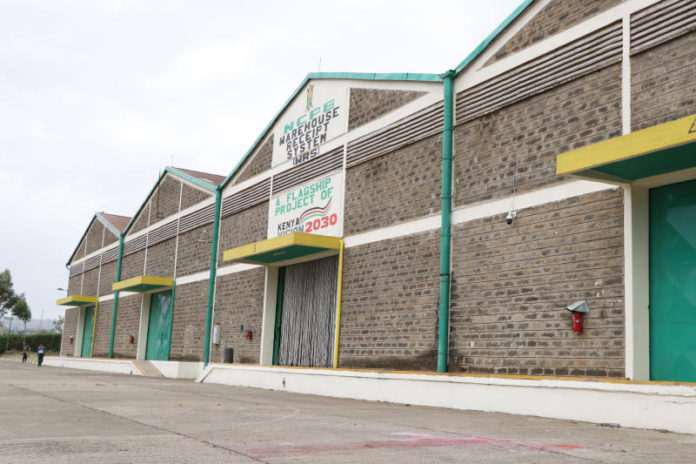Kenya is set to launch a new Warehouse Receipt System (WRS) in Kitale, Trans Nzoia County. County Executive for Agriculture, Livestock, Fisheries and Crop Management, Mary Nzomo made the announcement.
The electronic system would allow owners of agricultural commodities to deposit their goods in certified warehouses belonging to National Cereals and Produce Board (NCPB), where they will be get issued with receipts as they wait for the price to be in their favour before selling their products.
“We are pleased to inform farmers the solution to some of the several challenges they face after harvesting their crop would soon be addressed. The WRS will greatly boost modernising and enhance efficiency of agricultural marketing systems,” said Nzomo.
The Agriculture Executive disclosed the county government had already constructed four warehouses in Kwanza, Saboti, Kimini and Cherengany sub counties.
“The County Government has constructed four warehouses in four sub-counties where farmers will be able to store their grains under the Warehouse Receipt System. The WRSC is a State Corporation in the Ministry of Agriculture, Livestock, Fisheries and Cooperatives established by the Warehouse Receipt System Act No.8 of 2019,” noted Nzomo.
“It is largely a tool for enabling farmers reduce post-harvest losses and price exploitation by unscrupulous middlemen,” pointed out Ogola.
Reducing pressure on farmers
The tool would largely benefit farmers in cereals and pulses (maize, beans, rice, green grams), coffee, nuts and oils (macadamia and coconut), fiber crops (cotton), livestock products (processed meat and fish), processed milk, horticulture products (potatoes) and industrial crops (pyrethrum).
“The WRS reduces the pressure on farmers to sell their produce immediately after harvest when prices are usually low. It instead helps farmers to make decisions, such as when to sell by giving them the option not to sell under distress at harvest when prices are low,” the CEO explained.
Farmers can use the receipt as collateral to access affordable credit facilities from participating financial institutions or traded in commodity markets.
“The system collateralizes the warehouse receipt which, as a document of title, can be used to get credit, something which cannot be achieved if the produce was at farmers’ homes because there is no guarantee that it will be kept safely,” said Ogola.
“We have already entered into agreement with a number of lending institutions, including Cooperative Bank, Equity Bank, Africa Finance Corporation (AFC) and Family Bank,” he revealed.









[…] Full Article at farmersreviewafrica.com […]
Am looking forward for the Launch
Comments are closed.